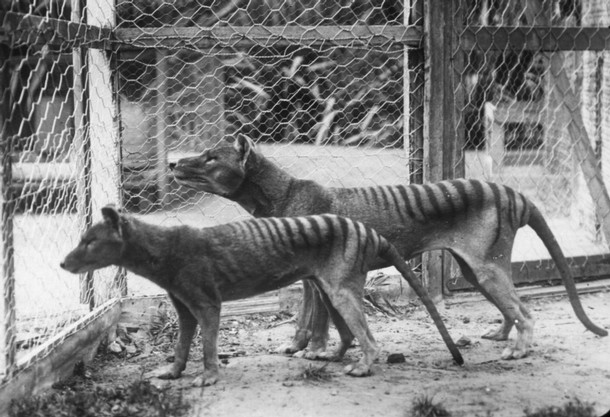
There can be no doubt that large numbers of mammals are at great risk of extinction. Knowing which species can benefit the most from intervention is much less clear. Researchers from James Cook University, the University of Malaya and the University of Adelaide propose using a new system called the Species Ability to Forestall Extinction (SAFE) index to determine how close each species is to extinction.
Previously, the International Union for Conservation of Nature (IUCN) has relied on their ‘Red List’ to rank relative species threats. Species are ranked as LC (least concern, for example the koala), NT (near threatened, white rhino), VU (vulnerable, polar bear), EN (endangered, African wild dog), CR (critically endangered, Sumatran orangutan), EW (extinct in the wild, Père David's Deer) and EX (extinct, Tasmanian tiger or thylacine, pictured above).
While the Red List is useful, it does not differentiate between species’ habitat or population requirements. For example, some species may not breed well unless they are present in great numbers or have vast expanses of territory. Such a species would decline much more rapidly than a more solitary species with minimal habitat requirements. The SAFE index takes into account how far a particular species is from dropping below its own minimum sustainable population.
According to Corey Bradshaw of the University of Adelaide:
Our index shows that not all Critically Endangered species are equal. A combined approach – using the IUCN Red List threat categories together with the SAFE index – is more informative than the IUCN categories alone, and provides a good method for gauging the relative 'safety' of a species from extinction.
The SAFE index would be used in conjunction with the Red List to do environmental triage--to determine which species could make a come back and which are doomed to extinction in the wild despite our best efforts.
No comments:
Post a Comment